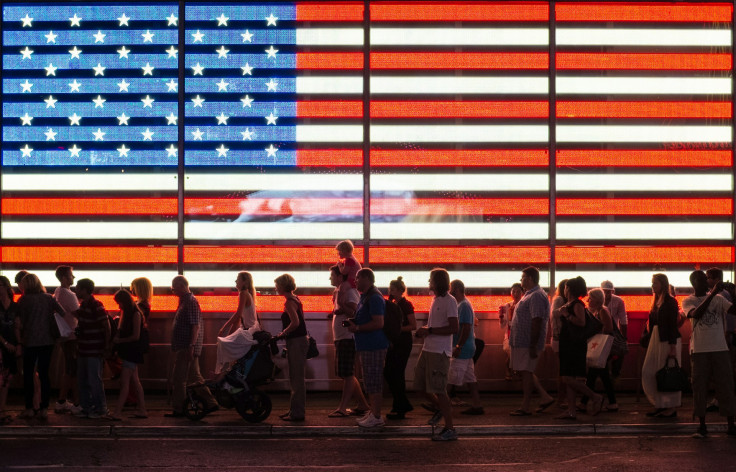'We Need Trump Here': Briton Tells US Liberal London's Crime Is So Out of Control, They Need His 'Lock Them Up' Approach

A British TikToker has ignited fierce debate after claiming that crime in London has grown so bad that locals now wish they had Donald Trump's tough-on-crime approach.
In a viral post, the man said he was on the Underground when another commuter told him, 'For all his flaws, we want Trump here.' The creator added that after spending weeks in the city, he understood why, describing London as 'tense', with residents constantly warned to protect their phones and avoid wearing expensive watches.
He wrote, 'We either have laws or we don't. Every citizen deserves to walk their city without fear.' The post resonated with thousands online, tapping into frustration over public safety and growing nostalgia for authoritarian leadership styles.
The Trump Playbook and Its Limits
Donald Trump's law-and-order rhetoric centred on mass arrests, harsh sentencing, and threats to deploy federal troops under the Insurrection Act. During his presidency, he often portrayed US cities as 'war zones' under Democratic control.
However, analysis by Reuters and other outlets found that his interventions produced, at best, short-term drops in gun crime — without sustained improvement. Civil liberties groups, including the American Civil Liberties Union (ACLU), warn that such tactics risk reviving mass incarceration and deepening racial inequality.
Critics say Trump's approach politicised policing by framing local safety as a partisan issue, blurring the line between community security and federal overreach.
BREAKING: We’re suing Donald Trump.
— Gavin Newsom (@GavinNewsom) October 5, 2025
His deployment of the California National Guard to Oregon isn’t about crime.
It’s about power.
He is using our military as political pawns to build up his own ego.
It’s appalling. It’s un-American.
And it must stop. pic.twitter.com/jdIMGz8hDP
London's Crime Reality vs Public Perception
While public anxiety about crime in London is rising, the data tells a mixed story. According to YouGov polling, more than half of Britons believe violent crime is increasing. Yet official Home Office data and the Crime Survey for England and Wales show long-term declines in most serious offences.
Some categories, including mobile phone theft and shoplifting, have surged post-pandemic; however, overall robbery rates have fallen by roughly 13% this year, according to the Metropolitan Police. Senior officers have pushed back against sensationalist narratives, warning that viral anecdotes can distort public understanding.
When adjusted for reporting standards, London's overall crime growth remains slower than in several other regions of England and Wales.
Europe's Populist Turn and the Allure of 'Strongmen'
Across Europe, populist and far-right movements are capitalising on similar fears. Analysts describe a 'creeping authoritarianism' that fuses nationalism, anti-immigration sentiment, and law-and-order populism. In the UK, crime concerns have become a lightning rod for broader frustrations about the economy, migration, and social cohesion.
Experts warn that framing complex social issues as moral decline can lead to punitive rather than preventive solutions. Sustainable safety gains, they argue, come from policing reform, better community engagement, and investment in social services — not mass crackdowns.
Could Trump-Style Policing Work in the UK?
Adopting American-style tactics in Britain would face serious legal and cultural barriers. The Human Rights Act and strong public oversight of police powers limit such measures. Still, some UK politicians have echoed Trumpian rhetoric, calling for expanded stop-and-search powers, harsher sentencing, and wider CCTV surveillance.
BREAKING: Illinois Governor JB Pritzker moments ago, regarding Trump sending troops to Chicago:
— Ed Krassenstein (@EdKrassen) October 4, 2025
“This is not about fighting crime or about public safety. This is about sowing fear and intimidation and division among Americans. It is about creating a pre-text to send armed… pic.twitter.com/X3xMkYROHe
Whether voters would accept such trade-offs between liberty and order remains uncertain. But one thing is clear: as fear meets politics, the debate over what safety should look like in Britain is far from over.
© Copyright IBTimes 2025. All rights reserved.





















